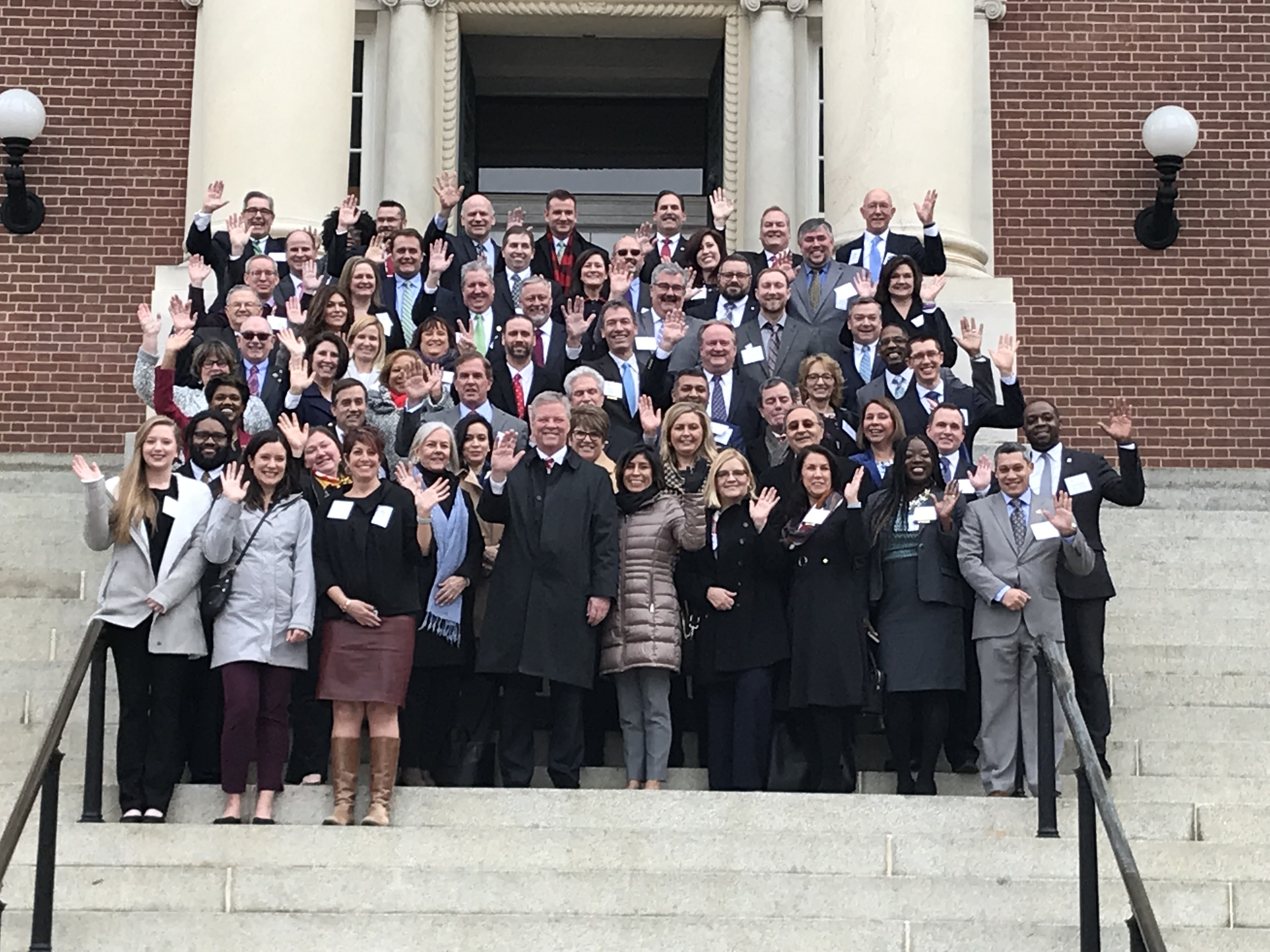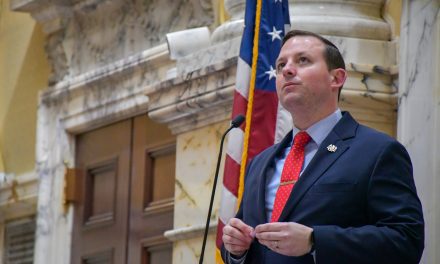By Diane Rey
For MarylandReporter.com
Score one for the little guys.
The day the bill to raise Maryland’s minimum wage to $15 was introduced in the House of Delegates with 67 Democratic sponsors, the Maryland Chamber of Commerce announced a new membership program designed to give the state’s small businesses greater clout.
So far, 14 local chambers of commerce have signed on to participate in the Maryland Chamber Federation. Their members that have 10 or fewer full-time employees –about 3,500 businesses across the state — receive free membership in the new federation, giving them access to the state chamber’s government affairs staff, among other benefits.
There is already a longstanding advocacy group for small business, the National Federation of Independent Business (NFIB), with chapters in Maryland and the other states.
Last year, the Maryland Chamber of Commerce testified on about 125 bills. “A lot was to prevent them from passing,” said Laura Toraldo, senior director of marketing and communications for the state chamber. They expect another busy legislative session this year, with the minimum wage proposal at the top of the list as small business owners warn it could result in reduced hours for workers and the elimination of jobs.
Yet, the proposal is favored by about 61% of voters in a MarylandReporter.com-Gonzales Research poll and there is a strong push to pass it this session.
The federation announcement was made Wednesday at the Maryland Chamber’s annual “Meet the State” event, which brought about 150 business leaders from across Maryland to Annapolis to see the legislature in action, meet with their representatives, and attend panel discussions on issues expected to impact business in this year’s General Assembly session.
At a press briefing Wednesday morning, Christine Ross, president and CEO of the Maryland Chamber of Commerce, said 92% of companies registered in Maryland are small businesses. By uniting them under the new federation umbrella, the state chamber hopes “to enhance their voice at the local, state and federal levels,” she said.
Predictive scheduling, leave, health care policies will be watched
Two weeks into the 2019 legislative session, business leaders said they are concerned about the phased-in minimum wage bill as well as those related to health care, education and taxes, including changes to the corporate tax and a possible sales tax on services.
They’re also interested in mandatory leave proposals and “predictive scheduling,” which calls for employers to give employees three weeks’ advance notice of their work schedules. This issue is being watched carefully by businesses in the hospitality sector and seasonal businesses where predictability is not always possible.
“Down here, everything changes, and it can change at any time,” said Larry Richardson, vice president of government affairs for the chamber. “There are issues where we’ll need you. We’ll need you to come down. We’ll need you to testify.”
General Assembly leadership focused on crime in Baltimore
At a panel presentation also attended by House Speaker Michael Busch, House Minority Whip Kathy Szeliga, and Senate Majority Leader Guy Guzzone, Senate Minority Leader J.B. Jennings, R-Baltimore-Harford counties, railed against crime in Baltimore as being a major issue this session.
“We’re in crisis mode…It’s having a major impact. People aren’t going to restaurants, the stadiums aren’t full…We have to address it,” Jennings said.
Speaker Busch praised Gov. Larry Hogan’s budget. “As a Democrat, I think it’s a great budget,” he said – while acknowledging that the potential for a recession could change projections in the out years. “We’re looking for an uphill struggle for everyone if the recession hits,” he said.
At a second panel featuring committee chairs, Del. Luke Clippinger, D-Baltimore, new chair of the House Judiciary Committee, predicted that crime and public safety would be uppermost in legislators’ minds this year. “We’re going to take a look at juvenile justice and do a deep dive there,” Clippinger said.
Sen. Bobby Zirkin, chair of the Senate Judicial Proceedings Committee, agreed that crime, especially in Baltimore City, is a major issue this session. “It affects my constituents, residents, tourism. We have got to get a handle on this.”
Counties sign on to federal model
Leonardo McClarty, president and CEO of the Howard County Chamber of Commerce, which has about 700 members, was an early proponent of the Maryland Chamber Federation initiative. He said it was a way to make the voice of business heard since so many local chambers have a lot of different concerns to handle, with minimal staff. He previously worked in Georgia and saw the federation model implemented successfully there.
“We’re pulled in various directions. This allows us to leverage our relationship with the [Maryland] chamber,” he said. “It’s a win-win for the state and for our employers.”
The county chambers that have signed on to the Maryland Chamber Federation are: Anne Arundel, Baltimore, Calvert, Carroll, Dorchester, Frederick, Harford, Howard, and St. Mary’s. The Baltimore City Chamber of Commerce is also a member.
Regional chambers that have joined are Central Maryland, Greater Bowie, Rockville, and the Salisbury Area Chamber of Commerce.
Del. Eric Bromwell, vice chair of the Economic Matters Committee, who served as one of the day’s panelists, encouraged business owners to take a more active role in state government.
“I don’t think there’s enough representation of business owners in the legislature,” he said. “Don’t butter us up. Get straight to it. Tell us the problems, tell us what you need us to do.”





Recent Comments